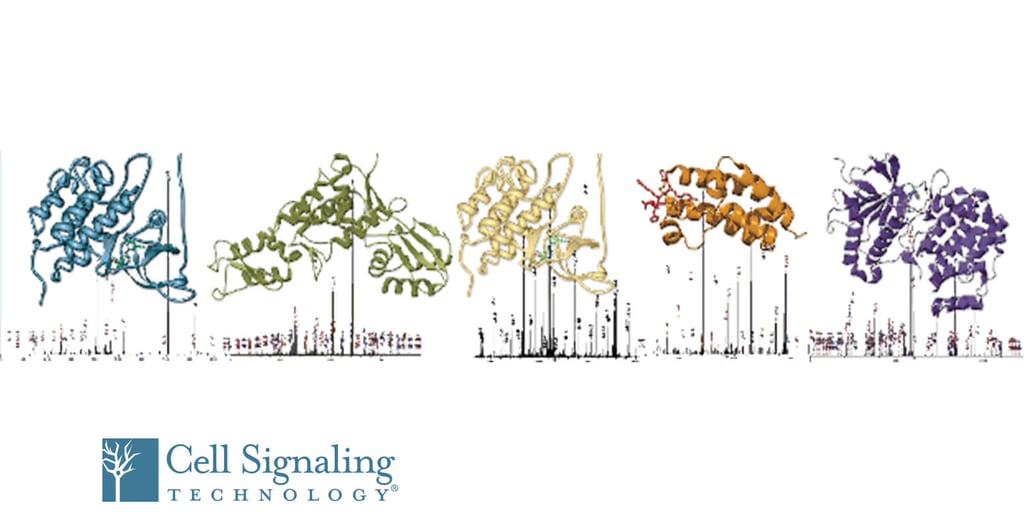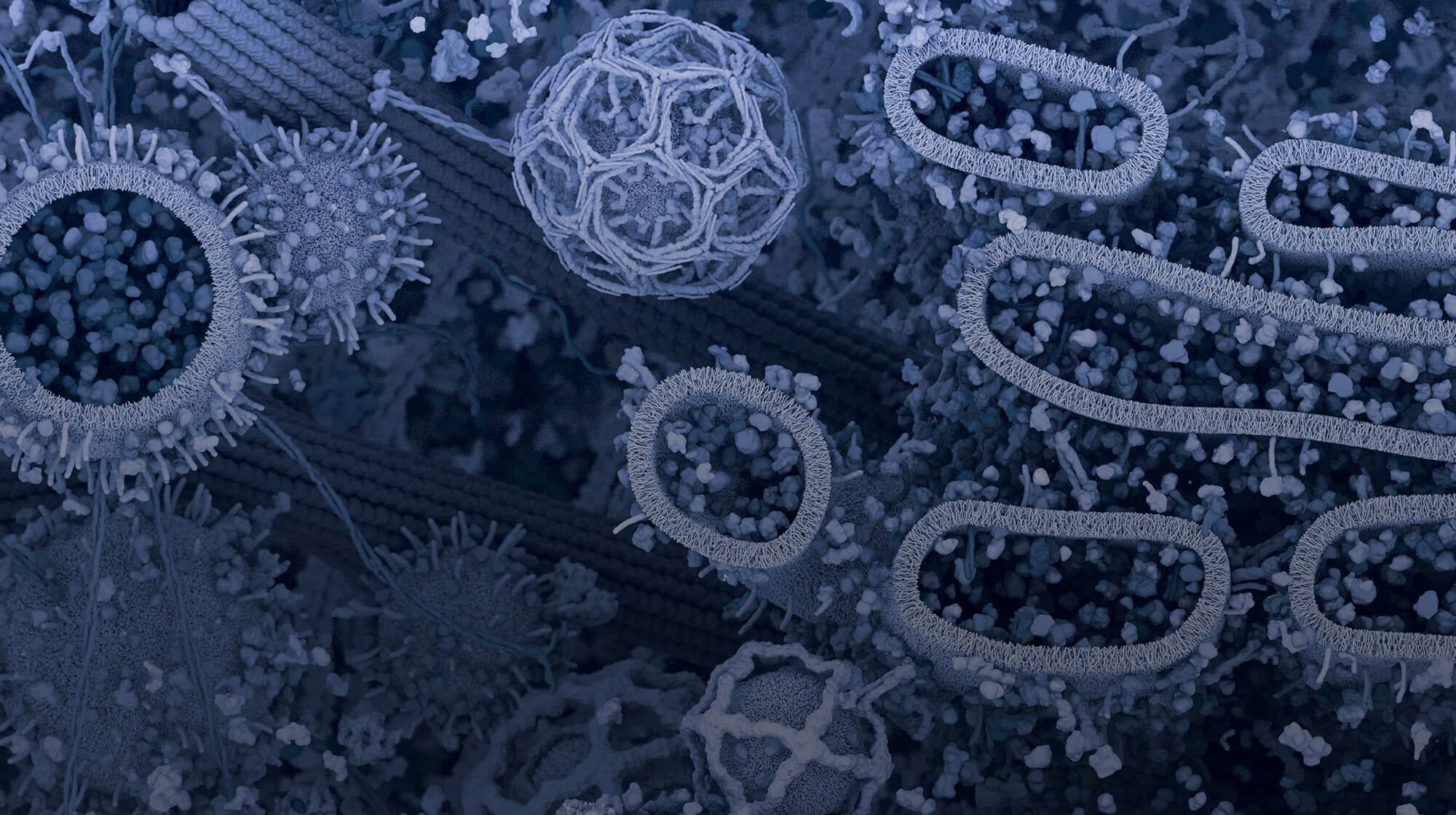PTMScan Proteomics: Identification and Quantification of Post-Translationally Modified Peptides
Protein post-translational modifications (PTMs) regulate all aspects of cellular growth, development, and disease biology. Proteomic analysis of these PTMs has become central to gaining a better understanding of cellular signaling. Current proteomic methods and instrumentation allow for identification of thousands of peptides in a single experiment. PTMScan proteomics from Cell Signaling Technology combine antibody-based enrichment with liquid chromatography-tandem mass spectrometry (LC-MS/MS) for identification and quantitation of post-translationally modified peptides. Products and services are available for analysis of protein phosphorylation, acetylation, ubiquitination, methylation, succinylation, and caspase cleavage from cell lines, tissues, xenografts, or other biological materials (PTMScan Discovery). Services have also been designed for targeted, in-depth coverage of critical signaling pathways (PTMScan Direct). PTMScan methods have been successfully applied to biomarker discovery, drug development, and studies to gain a better understanding of cellular signaling.
Multiplexed Quantitative Ubiquitylome Analysis utilizing Ubiquitin Remnant Immunoprecipitation, nLC-MS/MS, and Isobaric Labels
Large-scale, multiplexed quantitative proteomics experiments have recently become more accessible due to advances in both mass spectrometry instrumentation and reagents. Today, by utilizing isobaric labels (e.g., tandem mass tags), >8,000 proteins can be routinely quantified across 10 experimental samples in 1.5 days of analysis. However, to date, the analysis of the cellular ubiquitylome has been limited in the number of samples that can be multiplexed in one experiment. This webinar will highlight sample preparation methods including immunoprecipitation with the PTMScan ubiquitin remnant motif antibody (Cell Signaling Technology) and labeling of resulting peptides with isobaric tags. The scientist also discusses instrument methods (e.g., synchronous precursor selection MS3, SPS-MS3) that allow for accurate analysis of cellular ubiquitylomes. The scientist also highlights the application of this method in which the team quantified the change in >15,000 sites of ubiquitylation simultaneously across 10 quantitative channels upon treatment with Bortezomib.
Speakers:
Matt P. Stokes, PhD
Principal Scientist, Proteomics Group
Cell Signaling Technology, Inc.
Christopher Michael Rose
Postdoctoral Research Fellow
Gygi Lab, Harvard Medical School





